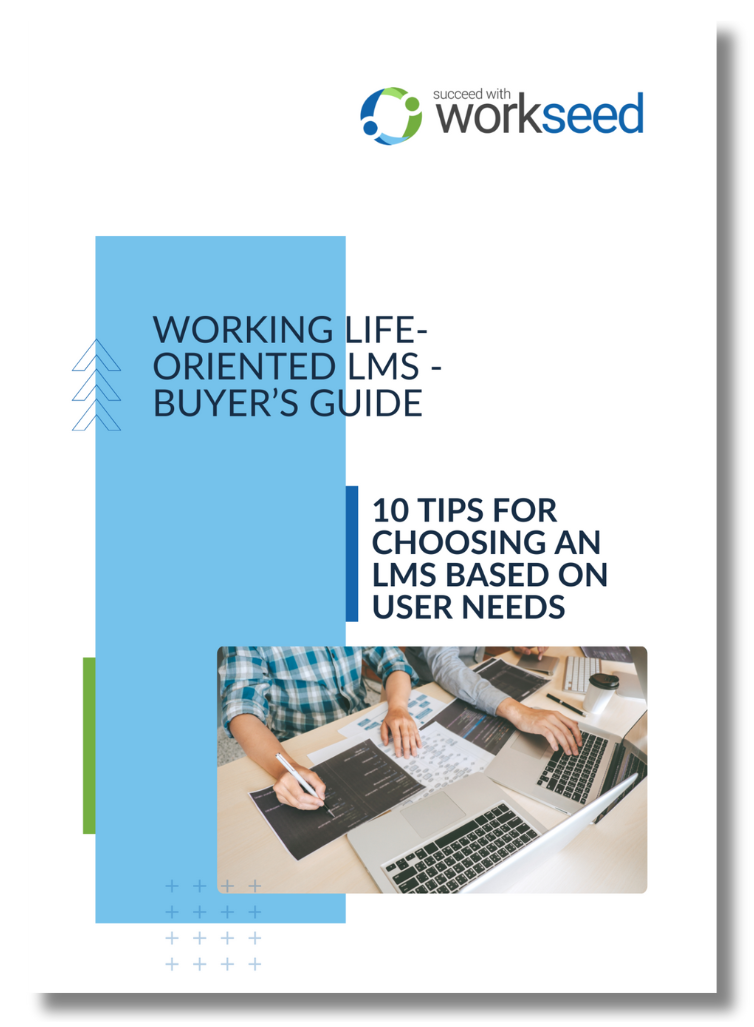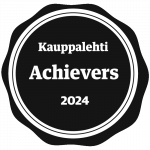Workshops can be important tools for multiple purposes, such as
- designing learning and development interventions
- mapping needs for services
- planning careers or personal development goals
- executing performance reviews or group projects
- training or coaching programs
Workshops can often be a multi-step process that is based on dialogue and reflection. Workshops can take place through a process that combines group work, facilitated discussions, and individual work.
Online workshops are an excellent framework for skills mapping, training, or project work. This article discusses how online tools and digital learning management systems can help construct a transparent process for workshops.
Online workshop allow for a versatile dynamic
At best, a workshop combines different activities that support one another and serve a common purpose. These activities help to form a clear picture of participants’ needs for support and personal strengths.
Activities that form a part of a competency mapping can include:
- online lectures or webinars
- group discussions
- individual reflection
- reports and learning diaries
- facilitates discussion sessions
- one-on-one counseling
There are many ways to provide a workshop. Traditionally, a workshop could take place in-person in a class or conference room. Participants would attend in person and work on individual assignments between sessions. There could also be one-on-one meetings with a trainer or counselor.
It is also possible to organize workshops in remote or hybrid format. For instance workshops might take place in person, but group discussions could take place on an online forum and individual counseling could take place remotely.
Benefits of online workshops and counseling
Leveraging an LMS for online workshops and assignments leads to very different skills mapping. Online and hybrid methods are suitable for many situations, and can apport for example the following benefits:
Accessibility. Online workshops have a low barrier of entry. It is easier to offer workshops to broader audiences despite factors that limit participation to in-person events, such as physical location, life situation, income level, and so on. It is also easier to tailor the workshop for special needs.
Flexibility. Online workshops are easier to adjust to working participants’ schedules. Flexibility of participation makes the workshops available for more people and often take less time, which can make the contents more engaging as well. At the same time it can be easier for organizers and facilitators to arrange workshops remotely.
Different ways to work and learn. In online workshops it is easier to combine different types of activities. It is significantly easier to offer alternative ways to complete assignments and participate. It is easier to accommodate the preferences and strengths of participants and make results of skills mapping more transparent.
Reduced costs. Skills mappings can be significantly more costs effective when they are at least partially remote. It may not be necessary to book a conference space or pay for transport and accommodation related costs.
Scale training. When skills mapping leverages remote workshops, there are no hard limits on the amount of participants. Depending on what kind of activities are organized, it may be possible to offer skills mapping even for large audiences. Peer reviews, groups assignments, and discussions can help facilitators to concentrate on the most relevant parts of their work.
Bring different activities together. Conversation works best when all the participants are present at the same time. Individual assignments require time and concentration. Personal counseling requires the ability to concentrate on individuals. These requirements are often mutually exclusive, making multiform participation very beneficial.
Leverage your LMS for online workshops
Managing online workshops using an LMS helps to coordinate all processes more effectively. An online learning management system will provide all the necessary tools for organizing workshops, sharing materials, completing assignments, and monitoring participants.
Using an LMS to manage online workshops has at least the following benefits.
Workshops and discussions
Workshops usually comprise lectures, class-based activities, group works, and discussions. Often workshops take place in real time and even in person to make it possible to facilitate discussions and group works.
If the workshop takes place online, it is usually beneficial to make a recording for participants. Participants can rewatch and consult the discussion as needed, and stay up to date on sessions they were unable to attend in real time.
Learning management systems facilitate organizing and coordinating online events directly on the platform. It is also possible to share recordings on the platform for participants. Workseed also makes it easy to manage participants, calendars, and support materials for workshops.
Individual assignments and discussions
Apart from real-time workshops, skills mappings often involve individual assignments and reflecting on learning. These activities require time and sufficiently lenient deadlines. Individual assignments may include written reports, observing own work, or creating learning diaries. It is also possible to complete guided or problem centric assignments.
Activities beyond real-time meetings may also be group-based. Participants may be given the opportunity to give their input on discussion forums or view and comment on each others’ work.
These assignments take more time and require a flexible schedule. A learning management system provides an excellent framework for these assignments. All participants can give their input easily on the same forum, and facilitators can easily monitor the entire group at the same time.
Counseling and mentoring
Skills mapping and workshops may involve individual counseling and tutoring. Facilitators may instruct individuals and smaller groups, guide the discussion, comment on assignments, and give personalized feedback.
Facilitators must actively participate in discussions, follow up on participant activity, and provide feedback. As the group size increases, so does the facilitator’s workload.
Using a learning management system can facilitate monitoring and counseling participants. The platform can help facilitators to monitor work progress, identify need for support, and provide actionable feedback by providing an easy workflow that saves time.
Workseed as a platform for online workshops
Workseed is a learning management system that facilitates working-life oriented learning. It provides a centralized environment for administering participants, creating and sharing contents, completing and assessing different assignments, and providing feedback.
Workseed has tools for managing flexible online workshops, making their holistic management on a single platform easy. It provides particularly useful tools for documenting learning, creating learning diaries, and providing personalized counseling for participants.
In case you want to know more about the features and use cases of Workseed, feel free to book a demo here. Our experts will help you map how a digital learning management system can help your organization provide higher quality workshops and counseling.
In case you are already on the lookout for an adequate learning management tool, we recommend you see our buyer’s guide in our blog. Our popular blog post helps you understand what aspects should be taken into consideration when choosing an LMS based on user needs.














